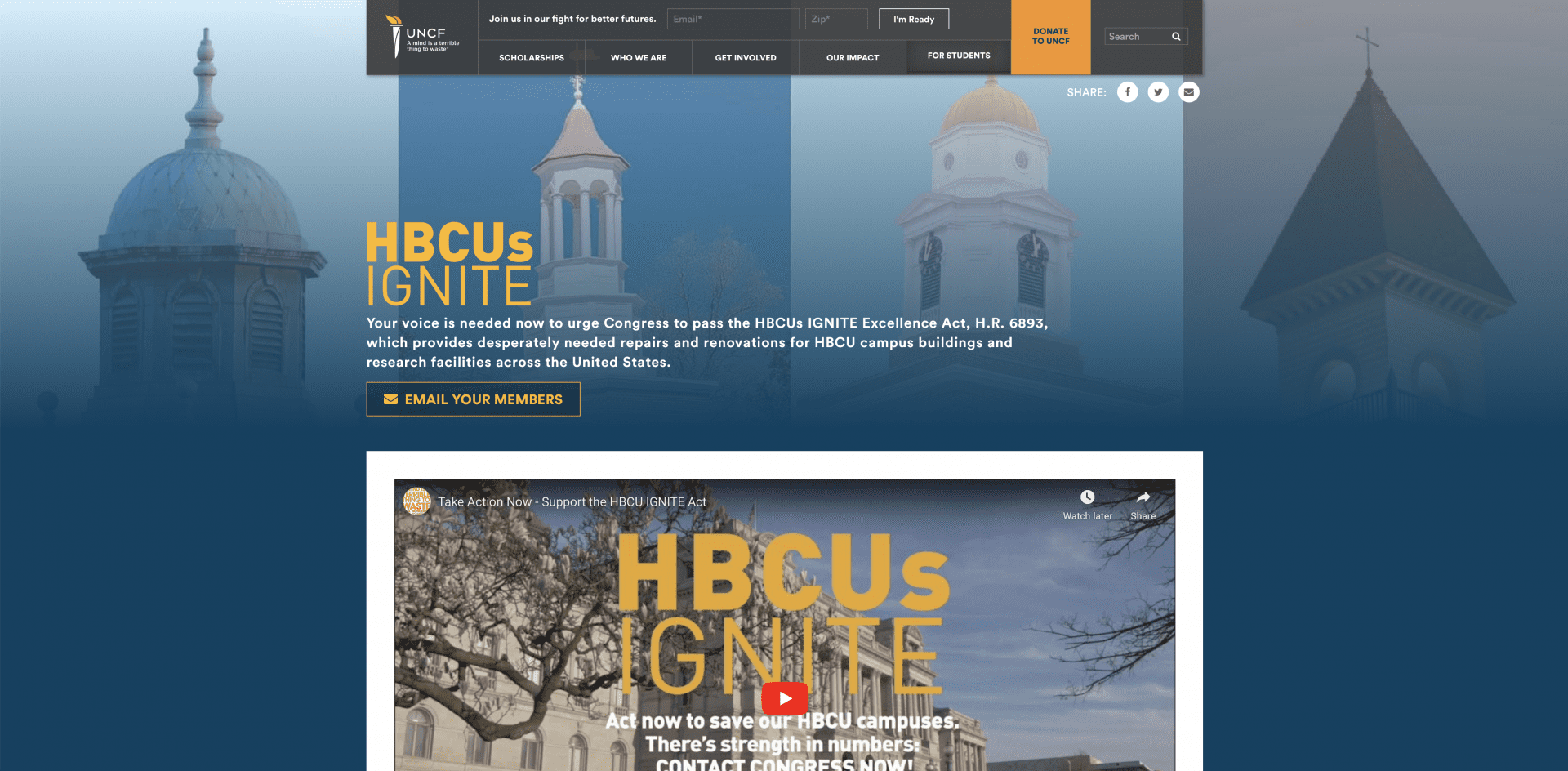IMPACT
UNCF—More Historic Progress a Persistent Advocate for HBCUs during FY 2022

In May, UNCF Senior Vice President for Public Policy and Government Affairs Lodriguez V. Murray testified before the House Appropriations Committee. In this testimony, he outlined HBCU priorities, including the following:
- Increasing institutional support, the Title III Strengthening HBCUs Program, to no less than the authorized $400 million level so that all HBCUs feel the program’s continued financial growth
- Double the maximum Pell Grant award to assist minority and low-income students from its current $6,345 to $13,000
- Significantly increase funding and investments for technology and research at HBCUs to spur job creation and innovation
- Passing the HBCUs IGNITE Excellence Act, which provides desperately needed repairs and renovations for HBCU campus buildings and research facilities across the United States
While there were successes, including the HBCU inclusion in President Biden’s February 2022 State of the Union Address, there were continued challenges. Bomb and other threats lodged against HBCUs took a major toll on staff time and resources. UNCF threaded the needle on how to laud the Biden Administration for being possibly—in only two years’ time—the best presidential administration for HBCUs ever while still holding the U.S. Department of Justice and Federal Bureau of Investigations (FBI) accountable to make meaningful arrests, deterring others from threatening HBCUs. UNCF was front and center on both efforts, a task that would have been left undone without its leadership.
As the crown on an otherwise successful year, the President’s debt relief program for student loan borrowers is a landmark accomplishment. President Biden initially planned to provide $10,000 in debt relief qualifying borrowers. However, UNCF alone made the case that those who need the most relief should receive the most. Through its government affairs efforts, the organization insisted a “rising tide floats all boats” effort would not provide equity and advancement for high percentage of HBCU students and graduates who come from lower economic backgrounds and struggled to finance their education. The Biden administration then adopted the UNCF approach of providing double the relief—$20,000–for Pell Grant recipients. When this debt relief is finally achieved, it will be a significant step for those not looking for a handout, but a long-deserved hand up.
Government relations, often political, is a touchy subject. However, by making the case for the virtuous HBCUs which have long been underfunded and the students who daily strengthen our nation, UNCF has been successful, making a real difference for those who need it most.
